Journaling every day is powerful - Part 1: Introduction
Discover journaling and how it can help you live a happier, more fulfilling and more productive life
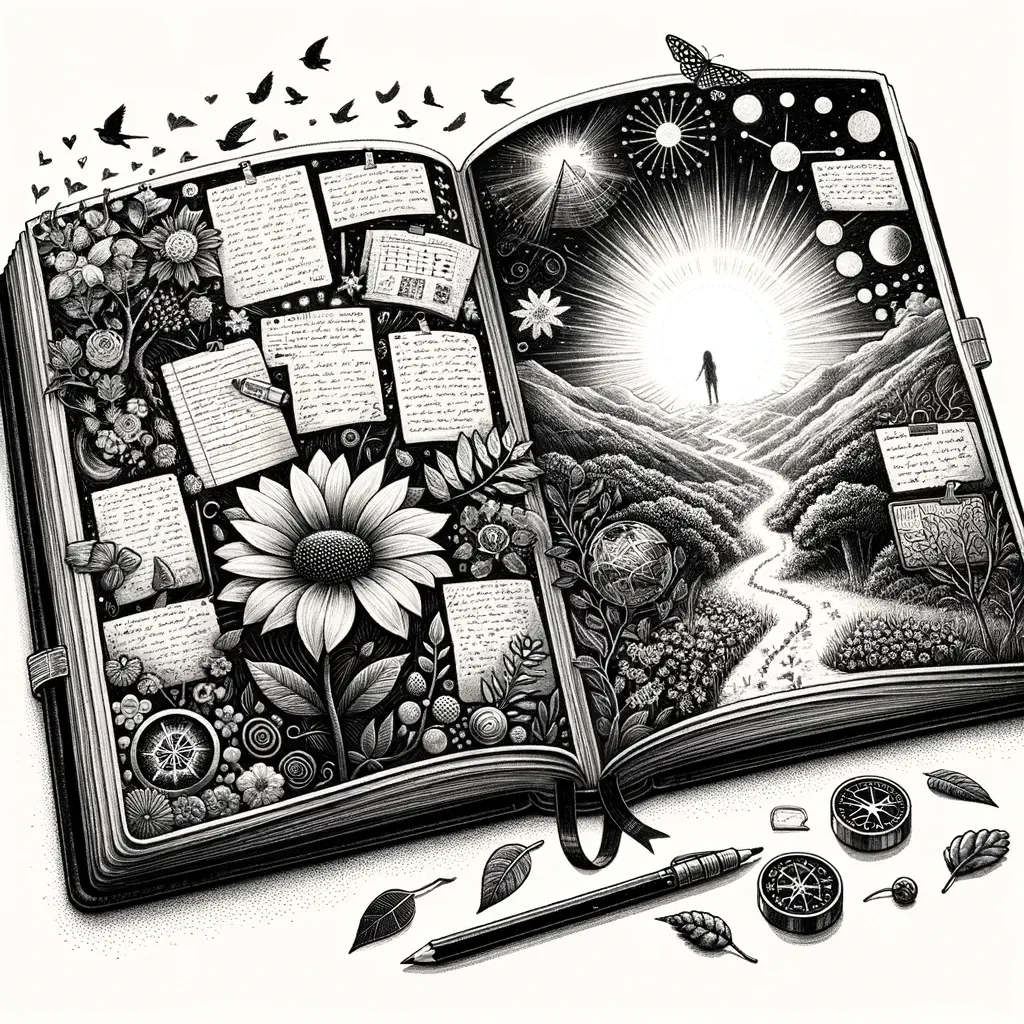
Introduction
Periodic journaling is a simple, yet powerful practice. It can help you declutter your mind and grow in all aspects of your life. In this series, I want to share some ideas about periodic journaling and writing daily notes. Together, we'll explore the why, the what and the how.
This is the first article of the series:

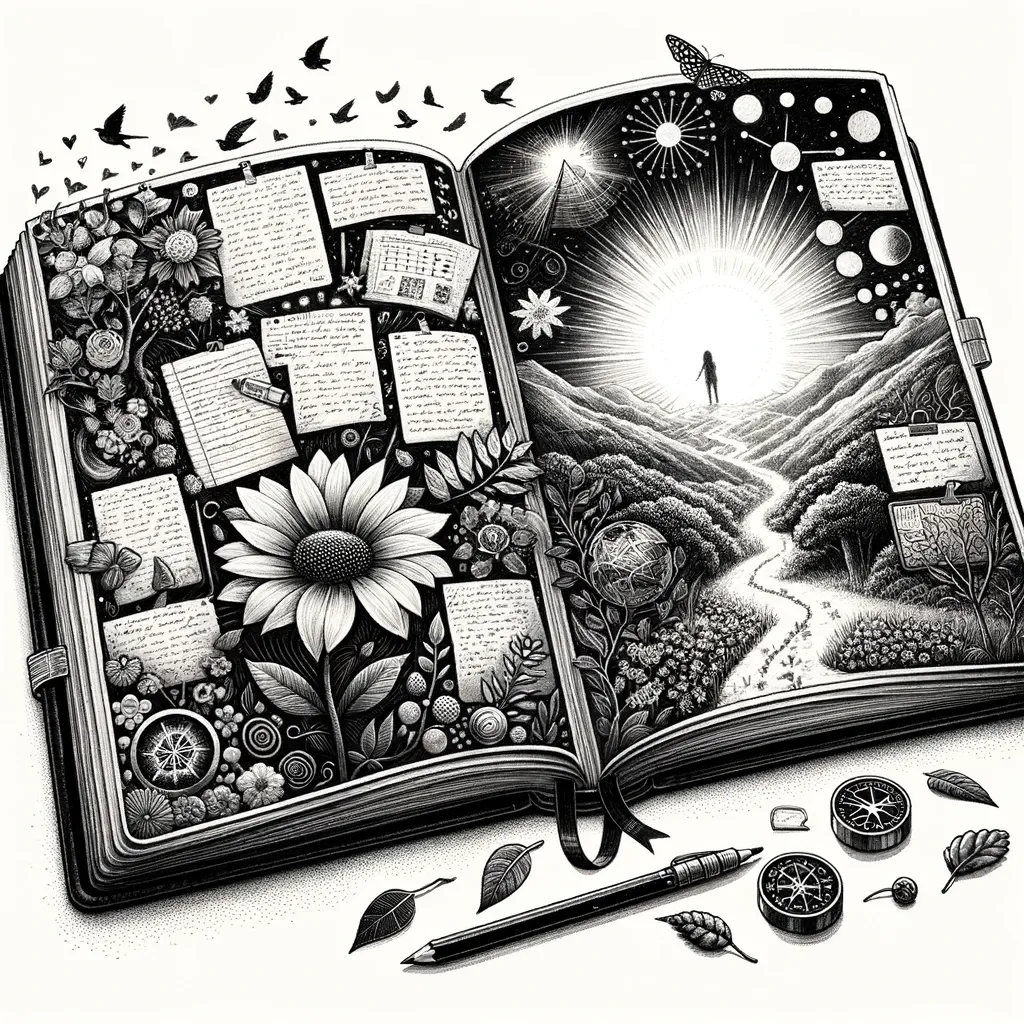
Through this series, I aim to motivate you to try this technique for yourself. Without exaggerating, I can say that journaling has changed my life for the better.
I'll tell you why I rely on periodic journaling. It is a critical practice for my well-being, productivity, and growth. I'll also explain why and how I use periodic reviews to keep improving.
A super brief history of note-taking
Countless people have practiced note-taking over the course of history. Roman and Greek philosophers used to record their thoughts on notes. Plato already considered writing as a form of artificial memory. He pushed his students to take notes. Those notes stored thoughts, facts, discoveries, and ideas. Famous philosophers like Seneca also recommended keeping a journal. There are many early examples like that. Later in history, commonplace books helped humanity to accumulate knowledge. Note-taking blossomed everywhere. Polish nobles wrote diaries for their families. Through those, they recorded their traditions, major events, anecdotes, and even jokes. Many families have treasured cookbooks with "secret" recipes passed down from generation to generation.
Throughout history, note-taking has helped thinkers, philosophers, authors, artists, inventors, and even boat captains. Leonardo da Vinci wrote 13,000 pages of notes and drawings. He wrote those manuscripts throughout his life. He used those to record his interests, his preoccupations, things that intrigued him, his thoughts, ideas, and creations. And so much more that humanity is now grateful to have inherited. There are countless others like Marcus Aurelius, Thomas Edison, Mark Twain, Anne Frank, Bill Gates, etc. Check out this article if you want to learn more.
Why not memorize everything?
Human memory is both fragile and capricious. Relying on it to retain all our knowledge is actually risky. Short-term memory (STM) is obviously limited in size and retention is very limited in time. Long-term memory (LTM) is seemingly infinite but subject to memory decay and interference. For instance, when learning new things and storing those in our long-term memory, it happens that the new knowledge interferes with the retrieval of known information. The truth is that we all keep forgetting things and losing access to information we know we have in our heads.
We can try forcing everything into our long-term memory, but it may not be the best solution.
On distractions, learning, and growth
Modern life is full of distractions. We are all swamped with information and distractions, and things are getting worse. Every single day, thousands of companies battle to catch our attention. Their goal is not to waste our time, but that's what they do if we let them! Of course, it's always up to us to decide how we spend our time, but it's very easy and very tempting to lay down and watch Netflix all day long. While that's a valid choice (to each its own), it is also meaningless. Meaningless fun is worth it from time to time, especially to avoid burnout, but living a good life requires growth.
If you instead try to grow as an individual, you will expand your horizons. Learning is addictive, like great TV shows. Once you're hooked, you'll never get bored. You'll want to explore more and more, and you'll dive into an ocean of knowledge. It is exhilarating and very rewarding, but it can also be overwhelming at times.
Today, learning is a critical skill for all knowledge workers and curious minds. In IT, my field of expertise, things change extremely fast, and the pace of innovation/change keeps increasing. I would be obsolete in a jiffy if I ever stopped learning new things.
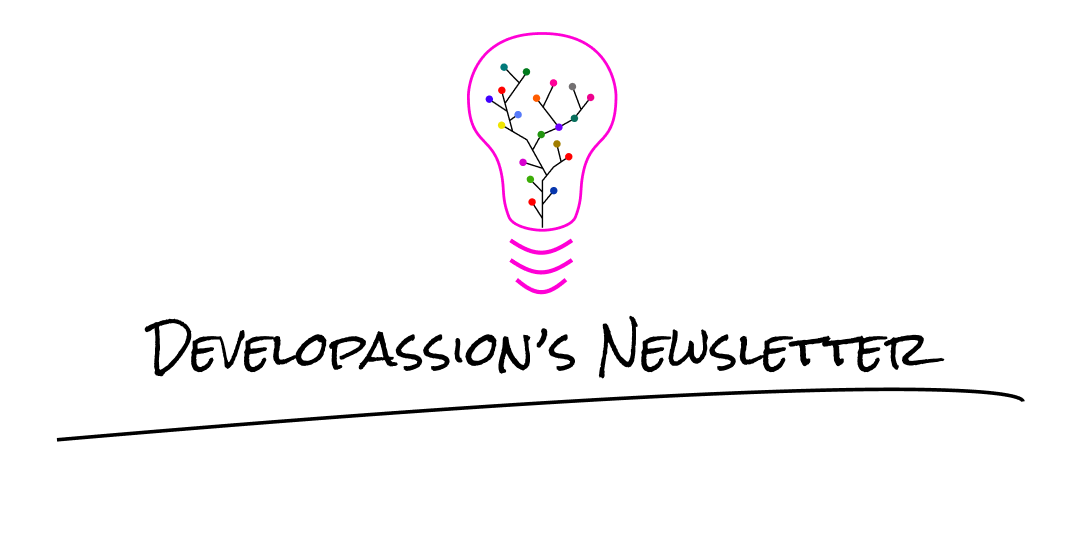
It's awesome to try to grow and consume a lot of information, but if we forget most of it, what's the point? Alas, as I mentioned earlier, we cannot rely solely on our brains, so what are we to do?
What we need is a system to organize our personal knowledge.
Moreover, as the Harvard Business Review mentioned, there's strong evidence that replaying events in our brain is essential to learning. Hence, journaling is even more important!
Personal Knowledge Management (PKM) and the Second Brain Analogy
Note-taking in general and Personal Knowledge Management (PKM) in particular can help us work around the limitations of our physical bodies. By taking notes, we can store information and create ourselves a "second brain". It in, we can safely stash our knowledge, ideas, thoughts, and memories.
Personal Knowledge Management (PKM) is all about helping us to collect, organize, integrate and store information. Not just anything, but the things we find valuable and interesting. I'll explore PKM further in future articles.

With today's technology, that second brain can be made of bits and bytes. It can be stored in the cloud and be accessible anywhere/anytime you need it. You can back it up, version the information, share it, etc. Your knowledge will not disappear or be subject to interference. As a digital native, I prefer going digital. Anything will do, as long as you create and grow your own system; a system that works for you.
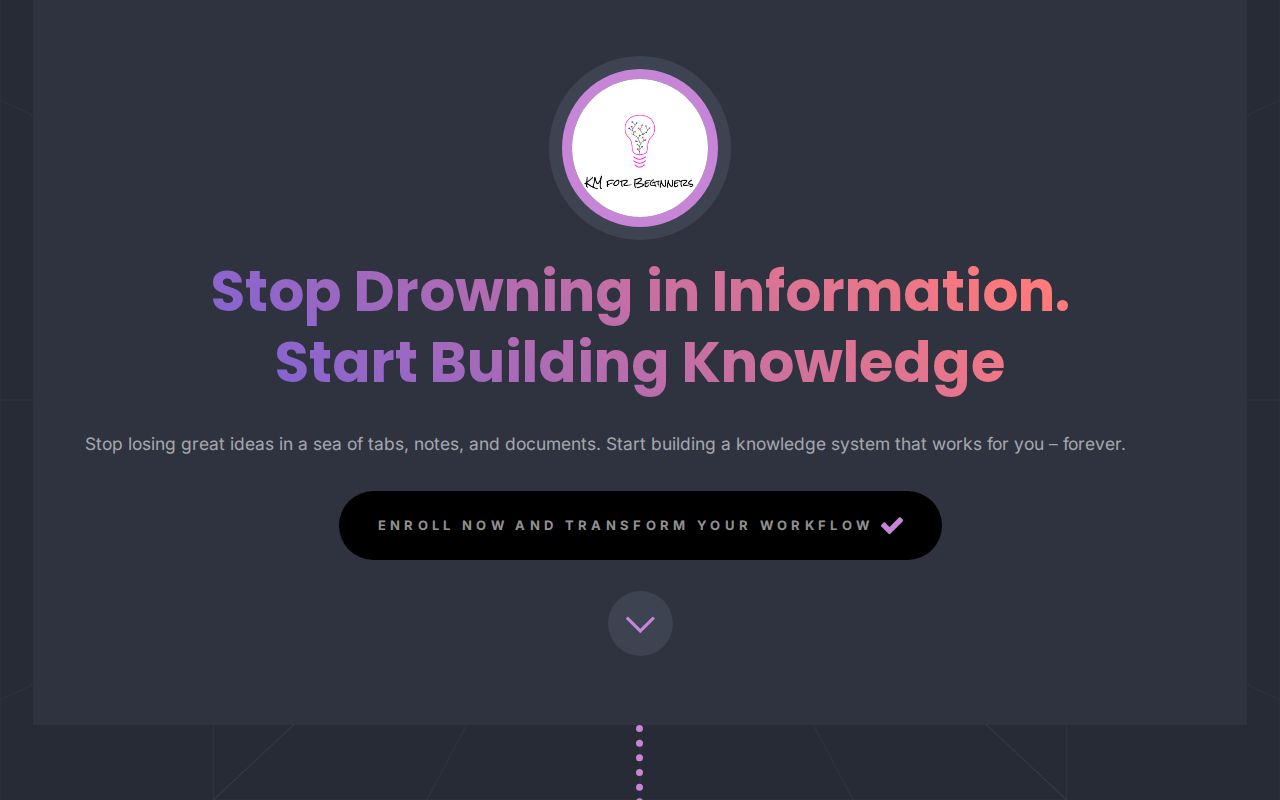
But where to start?
What Are Daily Notes Useful For?
Important events in our lives tend to be solidly anchored in our long-term memory. Although, most of the things we live fade away quicker than we realize. Do you clearly remember what happened today? Yesterday? Last week? Last month? The month before that? The further you go back, the fuzzier things will be. I personally have trouble remembering what I did a few minutes ago. You can ask my wife, she'll tell you about it 😂. When we don't have any external system and fully rely on our brain, we can only hope for the best, even if memorization techniques (e.g., spaced repetition) can certainly help.
I recommend practicing daily journaling. You can start small, and write a few sentences each day. The most important thing is to do it on a regular basis.
The goal of daily notes is to capture things that matter to you. For instance (in no particular order):
- Important events (in your life and/or in the world)
- Your ideas, thoughts, observations, emotions, etc
- Your progress
- Your achievements
- Your experiments
- Things you've read
- Things you've learned
- Interesting facts, links, ideas get exposed to
- People you've met
- Meetings you've had
- Things you're grateful for
- Things you want to do next
- Places you want to visit
- Future goals
- ...
The goal of daily note-taking is not to log everything. That would defeat the purpose. No, the goal is rather to make your days more memorable.
It's so easy to let the daily life/work routine take over and let days/weeks/months/years pass us by. By practicing daily note-taking, you'll pay much more attention to how you live your life. Writing daily notes regularly will make you much more self-aware. It's like a window to your mind and your soul.
When I started practicing, I realized that my journal helped me a lot. It surfaced thoughts and ideas that I didn't express otherwise. It has helped me better understand myself, and listen to my own needs. At work, daily notes have helped me to never forget anything, which made me incredibly reliable.
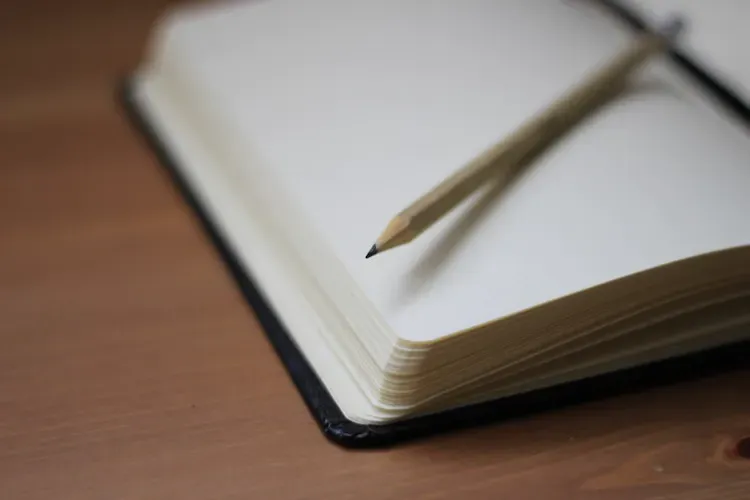
Daily notes are also a great way to bring order into your life. I'll get back to this in a jiffy.
Daily note-taking is actually a mindfulness practice. It forces you to actually think about yourself and your own experience of life. And not only once a year, but on a regular basis.
Your notes will also allow you to "save" the context of events and learning. It may seem useless, but it's actually very helpful to be able to correlate events in your life. And to understand what led you to explore X or Y. As a content creator, this is invaluable to me.
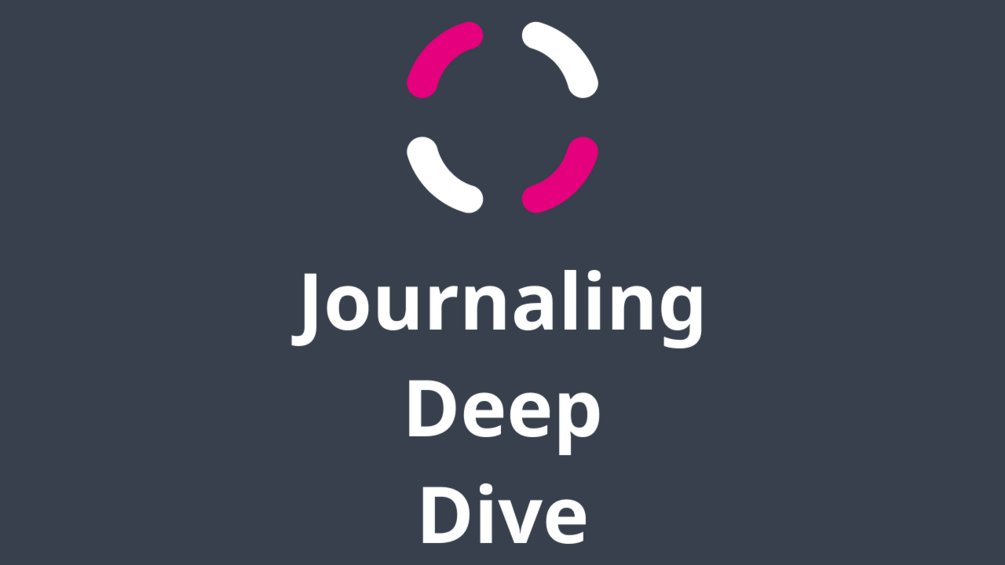
The hard part is turning the practice into a habit. To do that, it is important to keep it entertaining enough. Otherwise, you might abandon before you can reap the benefits. Try it for a few days, and reflect back. Go through your notes and pay attention to how it makes you feel. Does it help you to be grateful for important events in your life? Does it help you remember key learnings and discoveries? If the approach you've taken so far seems tedious/boring, then explore other journaling techniques. Experiment!
Sometimes, reminders are helpful to establish habits. Try scheduling journaling into your day. For instance, you can plan to take 5 minutes in the morning, 10 minutes before noon, and 5 minutes at the end of the day. That can help in the beginning, but I would not recommend taking daily notes only at fixed times. The main reason is that you might forget about what you've learned and what happened (thanks, flaky memory!). Also, writing things down right after the fact means that the emotions are still fresh. You know how you felt a moment ago. You still have the context in mind, which is invaluable.
If you practice journaling regularly, you'll realize how impactful/enlightening it is.
When and How to Take Daily Notes?
Daily notes can and should be taken throughout the day. Whenever you find something noteworthy, scribble it down somewhere. I write things down using pen and paper when I'm not in front of the computer. I always carry a notebook with me. When I'm on the computer, I prefer to use digital tools like Obsidian. I always keep it open, ready to record my thoughts and discoveries. Whenever some idea pops up in my head, I try to write it down as soon as I can.
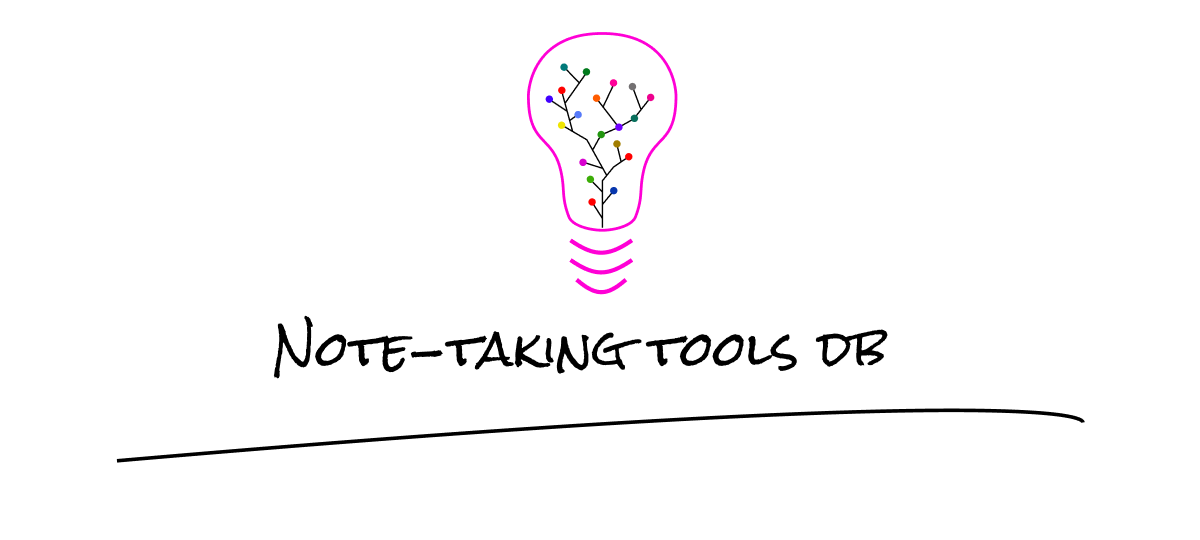
I go through dozens of notebooks every year and write down everything that occurs to me each day, an idea not written down is an idea lost. When inspiration calls, you’ve got to capture it. — Richard Branson
There are various approaches to journaling. An interesting one is bullet journals. You can either use pen & paper or digital solutions. Many studies have uncovered the benefits of writing by hand (e.g., relieve stress). But it doesn't matter much, as long as you find what works for you in the long run.
I currently use the following template for my daily notes:
- Morning routine: a quick reminder of my daily morning routine (a topic for another day)
- Plan for today: my initial plan for the day
- Notes of the day: the "random" notes I've taken
- Done today: what I've achieved
- Discovered today: what I've discovered, learned about
- Interesting links: wonders of the Web I've stumbled upon
- Gratitude: what I'm grateful for
- Shut down routine: a quick reminder of my evening routine (again a topic for another day)
I keep my daily notes structure quite basic. Maybe the above looks too complicated. If so, don't worry. Write what you want, how you want to write it. It's your journal, so it can be as messy or as structured as you want!
But again, note-taking is personal. Experiment to find what suits you!
If you want to learn more about the how then check out the book called How to Take Smart Notes by Sönke Ahrens. It's an awesome reference to take better notes.
I Don't Know What to Write: How to Find Inspiration?
Avoid putting too much pressure on yourself. Journaling is not supposed to be stressful. We don't always have something worth adding to our journals. We're sometimes stressed, sometimes overworked, sometimes too tired. It's okay not to write when you don't feel like it.
If you struggle to write, start with what's in your mind right now:
- How do you feel?
- Do you know why you're feeling like that?
- What has happened in the last hour?
- Was there anything interesting? Why? Why not?
- What would you have liked to happen instead?
- Do you have ideas to change that for the next hour?
- Have you achieved your main goal for the day? If not, why?
- Are you proud of something or someone?
Another approach that can be useful is to write morning pages. Check out the book about that too. Sometimes, those can help you walk past the famous writer's block.
In any case, don't blame yourself. There's no need. It's okay if the well is dry for now.
Conclusion
In this first article of the series, I've briefly (to say the least 😂) looked at the history of note-taking and at the fragility of our memory. I've introduced you to the basics of journaling and of personal knowledge management. I've given you some tips and tricks about how to get started, how to avoid writer's block.
I've told you why taking daily notes can help us grow. We discovered how it can improve our well-being, help us retain more information, and become more productive. It bears repeating: journaling is a mindfulness practice. It forces us to actually think about ourselves and our experience of life.
In the next article, I'll make the link between journaling, knowledge management, and learning. In addition, I'll also tell you how journaling can boost your productivity.
I sincerely hope that this article will be useful to you and that you'll consider experimenting with journaling, and maybe even joining our PKM community on Slack.
That's it for today. Stay tuned for the next part of the series.
References
How to Take Smart Notes by Sönke Ahrens: https://www.amazon.com/How-Take-Smart-Notes-Nonfiction-ebook/dp/B06WVYW33Y?tag=dsebastien00-20
- An excellent reference if you want to get started with note-taking
- History of note-taking: https://culturexchange1.wordpress.com/2015/05/29/a-little-story-of-note-taking/
- 18th-century note-taking: https://www.insidehighered.com/views/2016/06/22/essay-18th-century-note-taking
- Memory decay theory: https://en.wikipedia.org/wiki/Decay_theory
- Memory interference theory: https://en.wikipedia.org/wiki/Interference_theory
- Personal Knowledge Management: https://en.wikipedia.org/wiki/Personal_knowledge_management
- My daily notes template: https://twitter.com/dSebastien/status/1445782991066652673
Types of notes in a PKM
- https://www.nickang.com/2021-08-29-types-of-notes-in-a-pkm-explained-with-a-gardening-analogy-part-i/
- https://www.nickang.com/2021-09-05-types-of-notes-in-a-pkm-explained-with-a-gardening-analogy-part-ii/
- Journaling @ DailyStoic: https://dailystoic.com/journaling/
- Journaling @ NYTimes: https://www.nytimes.com/2018/10/25/style/journaling-benefits.html
- Journaling techniques: https://vanillapapers.net/2020/08/25/journaling-techniques/
- Journaling methods: https://www.sheownssuccess.com/personal-development/journaling-methods/
- Journaling tips: https://vanillapapers.net/2019/11/13/journaling-tips/
- Journaling for mental health: https://www.urmc.rochester.edu/encyclopedia/content.aspx?ContentID=4552&ContentTypeID=1
- Bullet journal: https://bulletjournal.com/
- Do you ever forget things at work: https://www.dsebastien.net/2020-06-09-do-you-ever-forget-things-at-work/
- Introduction to morning pages: https://juliacameronlive.com/basic-tools/morning-pages/
- The Artist's Way Morning Pages Journal: https://www.amazon.com/Artists-Way-Morning-Pages-Journal/dp/0874778867?tag=dsebastien00-20
About Sébastien
I'm Sébastien Dubois, and I'm on a mission to help knowledge workers escape information overload. After 20+ years in IT and seeing too many brilliant minds drowning in digital chaos, I've decided to help people build systems that actually work. Through the Knowii Community, my courses, products & services and my Website, I share practical and battle-tested systems. You can follow me on X 🐦 and on BlueSky 🦋.
I am an author, founder, and coach. I write books and articles about Knowledge Work, Personal Knowledge Management, Note-taking, Lifelong Learning, Personal Organization, and Zen Productivity. I also craft lovely digital products.
If you want to follow my work, then become a member and join our community.
Ready to get to the next level?
If you're tired of information overwhelm and ready to build a reliable knowledge system:
- 🎯 Join Knowii and get access to my complete knowledge transformation system
- 📚 Take the Course and Master Knowledge Management
- 🚀 Start with a Rock-solid System: the Obsidian Starter Kit
- 🦉 Get Personal Coaching: Work with me 1-on-1
- 🛒 Check out my other products and services. These will give you a rock-solid starting point for your note-taking and Knowledge Management efforts






